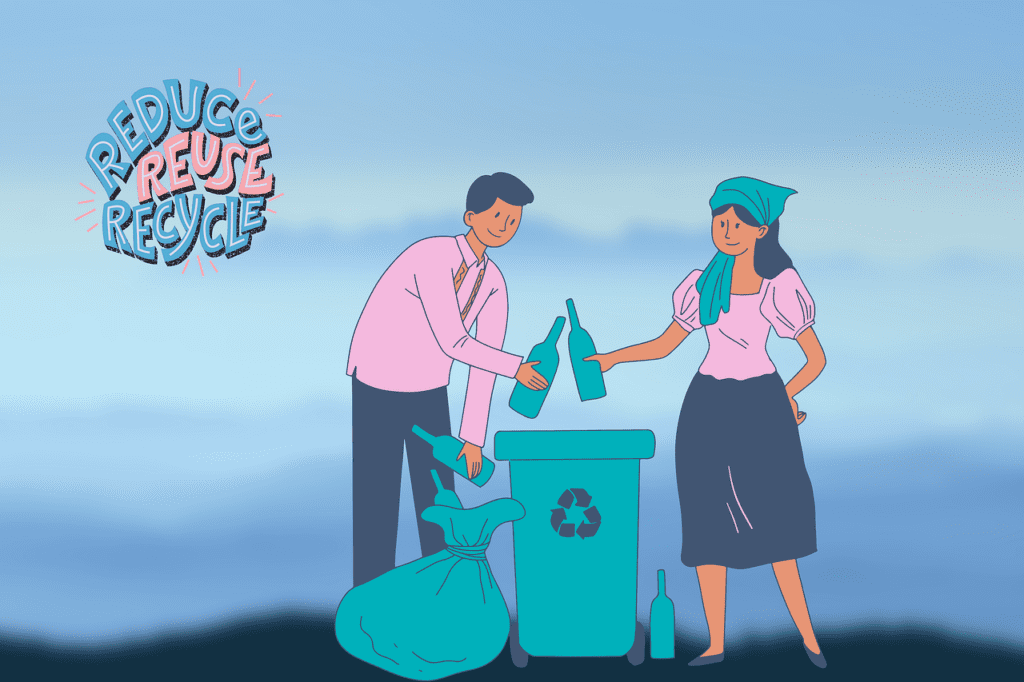An eco-friendly or green lifestyle not only favors the environment; it can work magic on your health also. Each minor change you introduce into your everyday life will contribute to lowering your ecological footprint and helping to create a basis for improvement in well-being. Below are a few workable tips that will be shared to help you lead a green life full of health.
Eco-friendly dietary options

- Composting: Compost food wastes to reduce trash and generate healthy, rich soil for gardening.
- Home Gardening: Grow as many fruits and vegetables as possible to reduce food miles and pesticides.
- Food Preservation: Learn how to preserve food through canning, freezing, or even pickling to reduce food waste.
- Organic Produce: Consume organic fruits and vegetables whenever available to avoid exposure to harmful pesticides and chemicals.
- Local Sourcing: Buy locally sourced fruits and vegetables, support farmers, and visit markets for more feasible transportation means to reduce emissions.
- Reduce Meat Consumption: Reducing meat consumption can be healthy for people and the planet.
- Eat Slower and More Mindfully: Practice eating mindfully, pay attention to every single bite, and listen to the body’s hunger and fullness cues.
Eco-friendly household habits

- Increase Energy Efficiency in Appliances: Replace old appliances by buying new energy-efficient models; these will help stimulate savings both in energy and dollars.
- Insulation: One needs well-insulated houses, which save energy and increase comfort.
- Solar Panel Installation: Consider solar panel installation or other sources of renewable energy, because this could mean decreased dependence on fossil fuels.
- LED Light Bulb Installations: Change all types of light bulbs into LEDs, which last longer and consume a very minute level of energy compared to the traditional incandescent bulbs.
- Energy Efficiency: Energy-efficient appliances and lighting are also highly recommended for carbon footprint reduction and energy bill reduction.
- Water Conservation: Resolve leaks, install water-saving fixtures, and take shorter showers.
- Reduce Waste: Compost food waste, recycle, and avoid single-use plastics.
- Non-toxic Cleaning Products: You can use your health- and environmentally-friendly, nontoxic cleaning products made from natural ingredients.
Sustainable Transportation

- Bike Sharing Programs: Avail the bike-sharing programs for the dual purpose of reducing carbon emissions and at the same time getting exercise.
- Public Transport: Public transport over private cars for long distances would reduce congestion and air pollution in cases when public transportation is available.
- Walking or biking: For any distance that is, or can be walked, or biked, whenever possible-this is an ideal opportunity to reduce the amount of carbon emissions and exercise simultaneously.
- Carpooling: Share the ride with friends or co-workers so the strength of vehicles could be reduced on the road.
- Electric Vehicles: Consider trading in your car for an electric one to help cut pollution in the environment.
Sustainable Personal Care
- Natural Products: Embrace personal care products made using natural ingredients that help avoid toxic chemical exposure.
- Reusable Items: Count on reusable items like water bottles, coffee mugs, and shopping bags for cutting down on waste.
- Responsible Shopping: Be particular with the products you purchase. Opt for items that are sustainable and ethically produced.
Community Engagement

- Local Food: Support available farmers’ markets, community gardens, and food co-ops for sustainable food.
- Environmental Advocacy: Engage in local and national environmental advocacy.
- Education and Awareness: Educate yourself and others about environmental issues and sustainability best practices.
- Volunteer: Become actively involved in local environmental organizations through donating your time to further assist these sustainable efforts.
- Educate Others: Engage your friends, colleagues, and community members in conversation about sustainable lifestyles.
- Support Policy for Sustainability: Promote policies that provide environmental protection and social justice.
Sustainable Travel

- Ecotourism: Choose sustainable travel destinations and places of stay that support the environment.
- Limit Travel: Take more local vacations and avoid traveling when there is no absolute need for it.
- Carbon Offset: If you do fly, offset all of those travel miles by donating to certified carbon reduction projects.
Keep in mind that any little green thing you do leads to a greener planet and a brighter, healthy future. Doing these eco-friendly practices simply as a way of life can make a difference toward your health and nature.
Beyond the Basics: Advanced Eco-Friendly Practices
The following, in addition to what was suggested in the previous article, are some advanced strategies to deal with it:

- The 3R: Reduce, Reuse, Recycle, this mantra is esssential for minimizing waste and conserving resources.
- Support Businesses Operating Sustainably: Patronize businesses that take notice of sustainability and ethical concerns.
- Educate Yourself: Continue learning more about environmental issues through which you will be better placed to make informed decisions on sustainable living.
- Community involvement: Participate in community events promoting ecological responsibility and social justice.
- Conscious Consuming: Be mindful of every product you purchase, ensuring it is of the highest quality and made from durable sustainable materials.
The Benefits Of Green Lifestyle

- Health: The wellbeing will surely increase by reducing toxicity and pollutants.
- Save Money: Sustainable practices often save you money, with examples like reduced energy consumption and waste.
- All About the Environment: Through ecologically viable habits, you can make this world a better place for posterity.
- A Stronger Sense of Mission: Having a clear, committed focus on long-term well-being and environmental impact. It involves integrating practices that not only benefit personal health but also support broader ecological sustainability
Conclusion
These eco-friendly practices would be beneficial, creating a better environment, health, and everything. The eco-friendly lifestyle actually tends to help the environment as well as the health of humans for sustainable existence. Make conscious choices and integrate this practice into your life for a sustainable and personally meaningful future.
Little steps, great effect. Yet another way to remind oneself that every little thing counts: We’re all in it together-for a better and more sustainable future for ourselves and the generations we will be handing over to.

